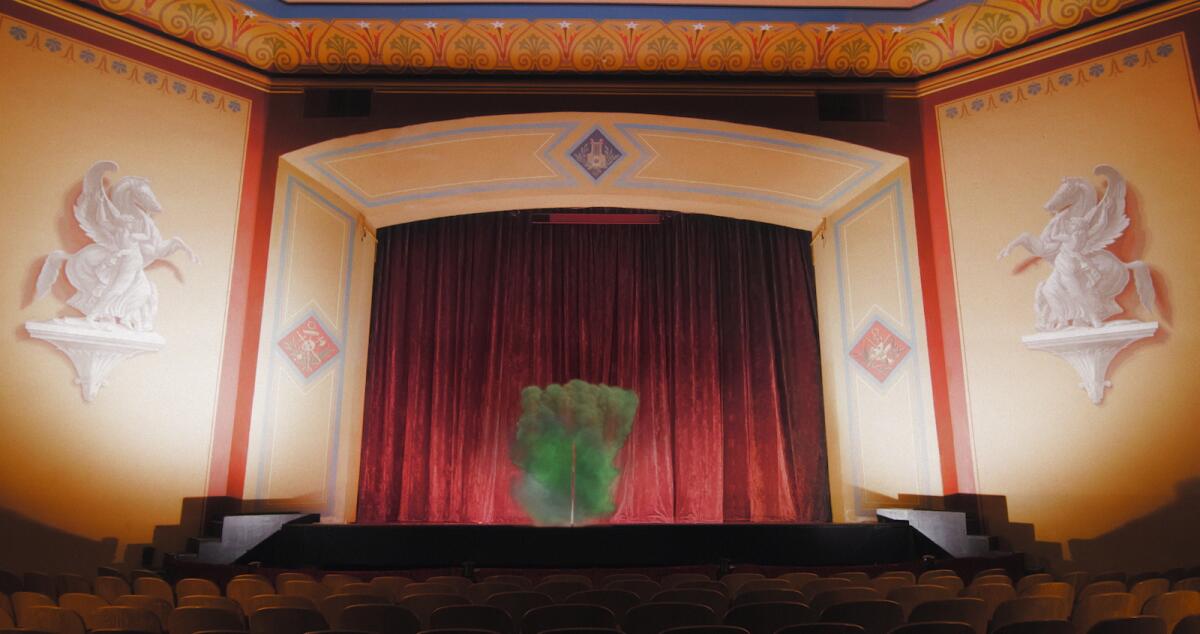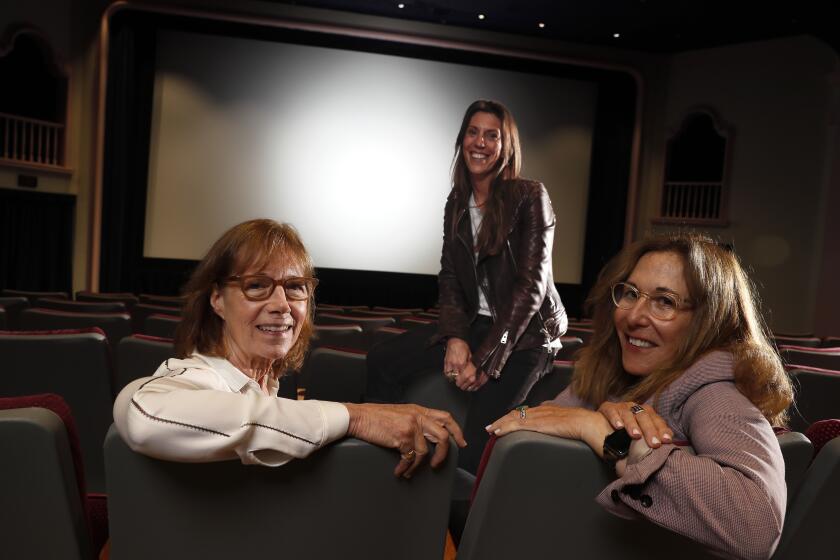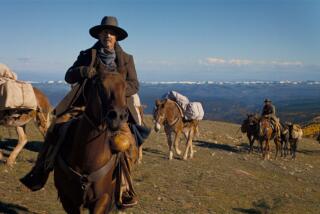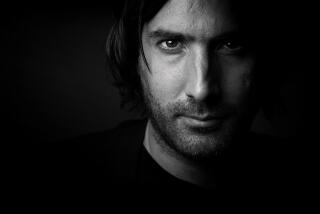Review: Dissecting the shifting realities of ‘Lynch/Oz’ is not as easy as pie

- Share via
When it comes to artists, influences aren’t always inspirations, and neither necessarily become explicit signposts in a finished work. But all three apply when you consider David Lynch’s career-long relationship to “The Wizard of Oz,” and how that seminal Hollywood fantasy/musical of subconscious questing — its themes and emotions, cultural legacies and totemic eccentricities — washes across the director’s many cracked and lush dreamscapes.
As cineaste subjects go, it’s a fertile association, certainly for a making-of specialist like Alexandre O. Philippe and his style of movie essay. Over a handful of documentaries, Philippe has turned what we dig into excuses to dig: “Alien,” “The Exorcist” and the shower scene in “Psycho” all have come in for feature length dissections of speculative fun and forensic reverence. His “Lynch/Oz” is a similarly celebratory journey of detail and overview, thick with footage, dotted with bits from Lynch interviews and appearances, and narrated by a cadre of cinephiles: six filmmakers and one critic.
But in moving his purview from the confines of a single movie or sequence to a surrealism-friendly director’s entire oeuvre — plus, of course, what the Judy Garland-led 1939 classic has to do with it — Philippe winds up with a curatorial hodgepodge; the lovingly cited connections about shifting realities, artifice, searching and all those plush Lynchian curtains never coalesce into anything unifying, and sometimes get repeated by different narrators. Meanwhile, the musings and references that seemingly have nothing to do with either Lynch or “Oz” (“Back to the Future”? “Beverly Hills Cop”?) stick out like pickled herring in your cherry pie.
Individually, the six hosted sections have their moments, the way time spent with a movie obsessive friend can feel like getting pleasurably zapped into a distinct consciousness. In a chapter titled “Wind,” critic Amy Nicholson (full disclosure: She is a friend) hooks us invitingly into the experiential thrill of our twin subjects’ can-you-handle-them worlds, while John Waters (“Kindred”) — in what sound like off-the-cuff answers to unheard questions, rather than a scripted monologue — speaks to the affinity he has for a fellow provocateur and “Oz” stan.
Elsewhere, in hit-and-miss discourses from filmmakers Rodney Ascher (“Membranes”), the team of Justin Benson and Aaron Moorhead (“Judy”), and David Lowery (“Dig”), Philippe seems to be making up for their wandering across the whole of cinema by ramping up the clip shout-outs to Chuck Workman-like levels. Someone watching “Lynch/Oz” isn’t likely to need reminding that the history of movies is a history of other movies, or that lots of directors have thematic and visual fetishes. But this one does it anyway, and often, when what we’re here for is the dive into everything “Oz”-adjacent about “Blue Velvet,” or “Inland Empire,” or “Eraserhead,” or “Twin Peaks: The Return” or whichever Lynchian headscratcher you choose. Why are the allusions explicit in “Wild at Heart,” for instance, but more enigmatic in “Lost Highway”?
L.A.’s reopened Vidiots, both a theater and video store, hopes to inject a sense of shared commitment and community into the local film scene.
Which is why the segment that most meets the potential “Lynch/Oz” sets up is Karyn Kusama’s (“Multitudes”), because it bores in without getting sidetracked by generalities. Sparked by amusing anecdotes about Lynch’s love of syrupy pancakes and aversion to explanation, it engages deeply and personally with the refractive mysteries and epiphanies of one Lynch masterwork — his 2001 neo-noir opus “Mulholland Drive” — as it reflects the gestural creativity of someone for whom “The Wizard of Oz” is formative and omnipresent.
Kusama thoughtfully and intelligently unwraps a pair of great films for us, while acknowledging what is inherently difficult about ascribing anything like truth to a person, a character or a work of art. As she says about Lynch, a “multiplicity of possibilities” is the rule, not the exception. “Lynch/Oz” overall, meanwhile, gets lost in its variations and fusions, a lot of eagerly analytical heel-clicking never quite transporting us home.
'Lynch/Oz'
Not rated
Running time: 1 hour, 48 minutes
Playing: Laemmle Monica, Santa Monica; Laemmle NoHo 7, North Hollywood; Los Feliz Theater, Los Feliz
More to Read
Only good movies
Get the Indie Focus newsletter, Mark Olsen's weekly guide to the world of cinema.
You may occasionally receive promotional content from the Los Angeles Times.











